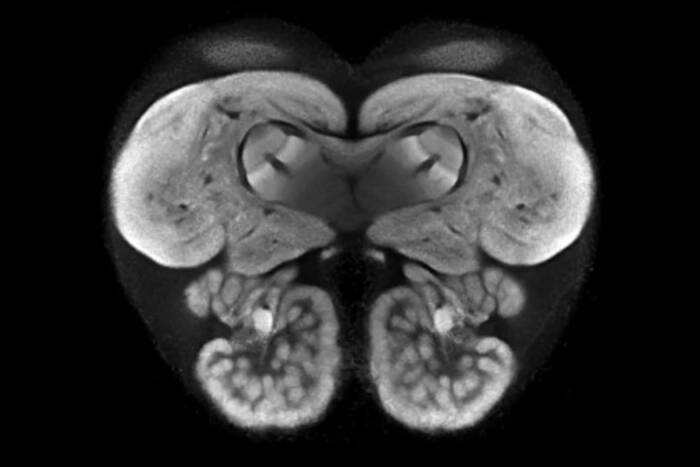Rockefeller fellow receives NIH ‘early independence award’ to study immune responses with high throughput sequencing
 Brad Rosenberg, who completed his M.D.-Ph.D. through the Tri-Institutional program in May, is one of 14 early-career investigators across the country to receive an NIH Director’s Early Independence Award, which will allow him to establish his own research program at Rockefeller. He has been named a John C. Whitehead Presidential Fellow.
Brad Rosenberg, who completed his M.D.-Ph.D. through the Tri-Institutional program in May, is one of 14 early-career investigators across the country to receive an NIH Director’s Early Independence Award, which will allow him to establish his own research program at Rockefeller. He has been named a John C. Whitehead Presidential Fellow.
Established in 2011, the award is given to exceptional early-career scientists who, according to the NIH Common Fund, demonstrate “the intellect, scientific creativity, drive and maturity to flourish independently without the need for traditional postdoctoral training.” The five-year, $2.1 million grant will support Rosenberg’s proposal to develop a novel high throughput sequencing strategy for analyzing complex populations of lymphocytes in the immune system.
Rosenberg first became interested in “next generation” sequencing methods while pursuing his Ph.D. at Rockefeller under the mentorship of Nina Papavasiliou, head of the Laboratory of Lymphocyte Biology, and Charles Rice, Maurice R. and Corinne P. Greenberg Professor in Virology and head of the Laboratory of Virology and Infectious Disease. At Rockefeller, Rosenberg utilized high throughput sequencing to approach the study of RNA editing. He discovered many new targets for an enzyme that edits RNA and developed a curiosity for other ways high throughput sequencing could be used to answer questions in biology.
“As the technology becomes more advanced and less expensive, I see a huge untapped potential in high throughput sequencing,” says Rosenberg. “I’m interested in developing tools that go beyond standard genome and transcriptome sequencing. We can apply the technology in ways that not only determine genetic sequences but also provide information about biological function.”
As a presidential fellow, his research will center on the complex populations of the immune system’s T and B cells and the receptors by which they engage their targets. In order to protect against the virtually limitless number of bacterial and viral pathogens our bodies might encounter, these immune cells employ a remarkable mechanism by which they shuffle specialized pieces of their genomes like a deck of cards, giving them the ability to generate extremely diverse receptors to recognize potential threats. Rosenberg plans to develop new high throughput sequencing methods with which to analyze these receptor sequences and associated cellular functions in the context of different immune responses. It’s a novel approach that he believes will yield a more comprehensive picture of the T and B cell repertoire — exceeding tens of millions of cells — but with the ability to also look at each individual cell’s genetic sequence and functional program up close.
“The early phases will involve technology development, and the ultimate goal is to transition the work to look at human responses — autoimmune disease and vaccine development, for example,” says Rosenberg. “Having Rockefeller’s research hospital on campus will be a tremendous resource.”
Rosenberg, who grew up on Long Island, earned his B.S. and M.S. in molecular, cellular and developmental biology from Yale University, where he studied T cell immunology and inflammation. He earned his Ph.D. at Rockefeller in 2010 and spent the last two years completing the clinical component of his M.D. at Weill-Cornell Medical College.
The Early Independence Award is one of several grants overseen the NIH Common Fund, which was enacted into law by Congress through the 2006 NIH Reform Act to support trans-NIH programs with a particular emphasis on innovation in disease-specific research. Rosenberg is the first researcher from Rockefeller to receive an Early Independence Award.


